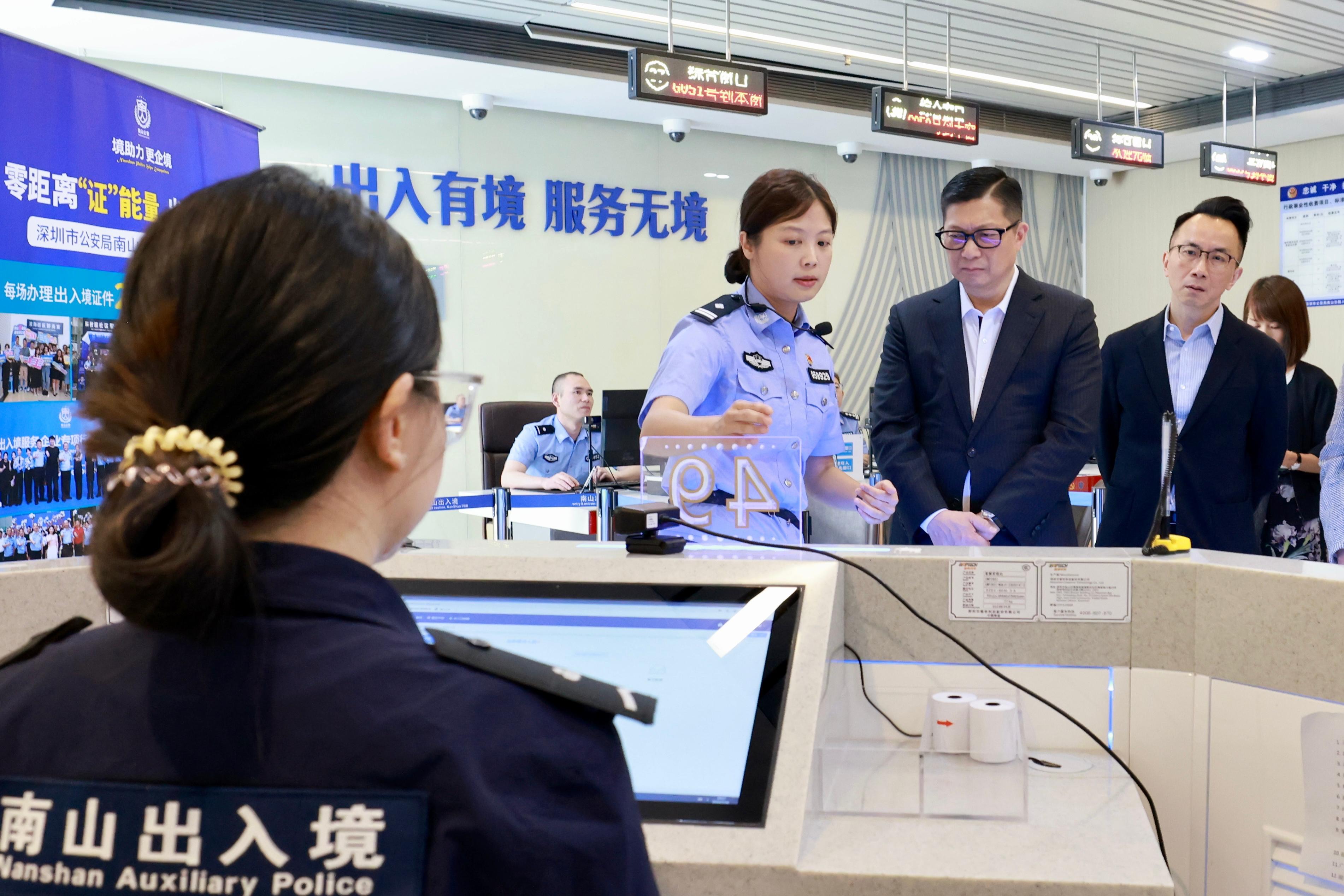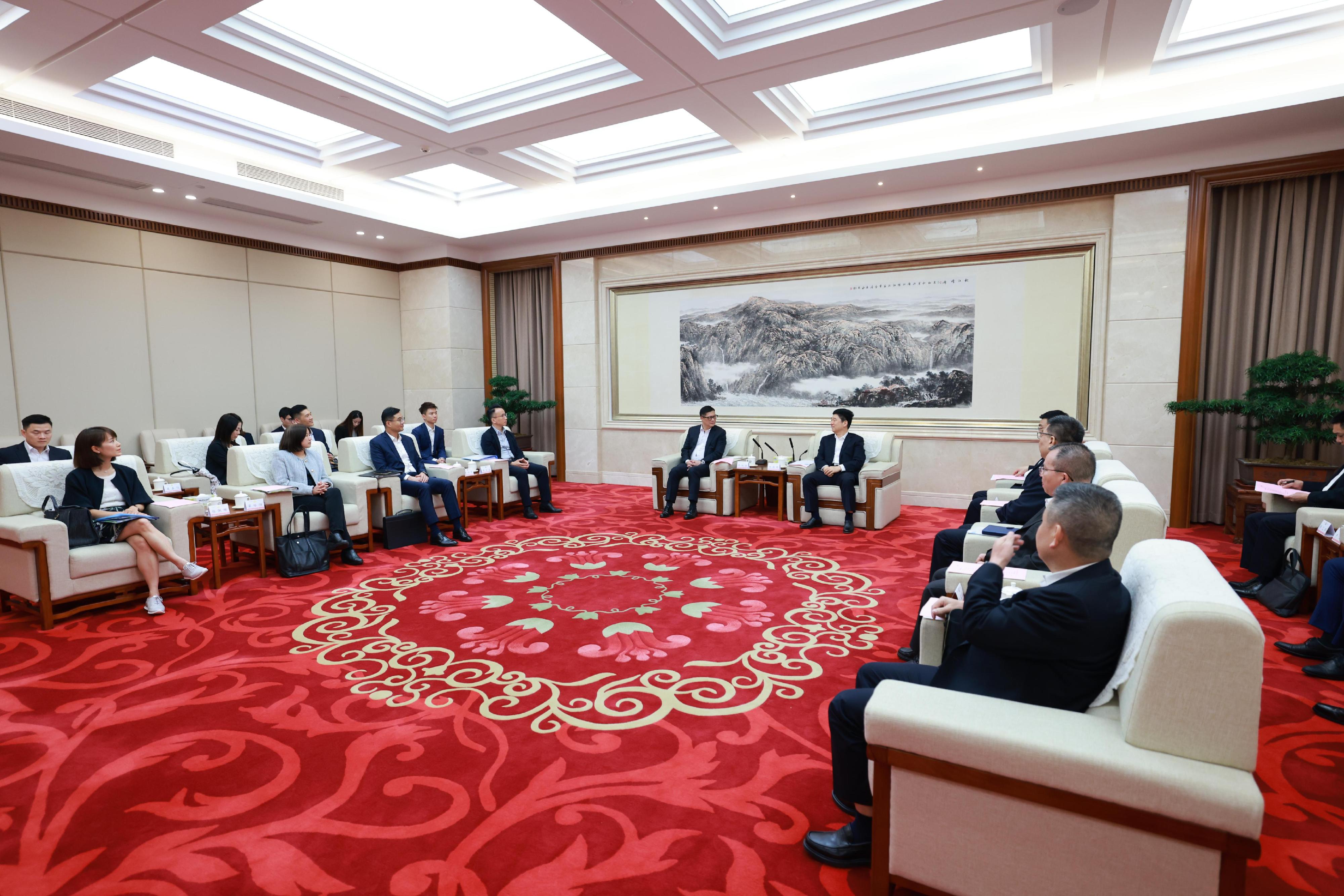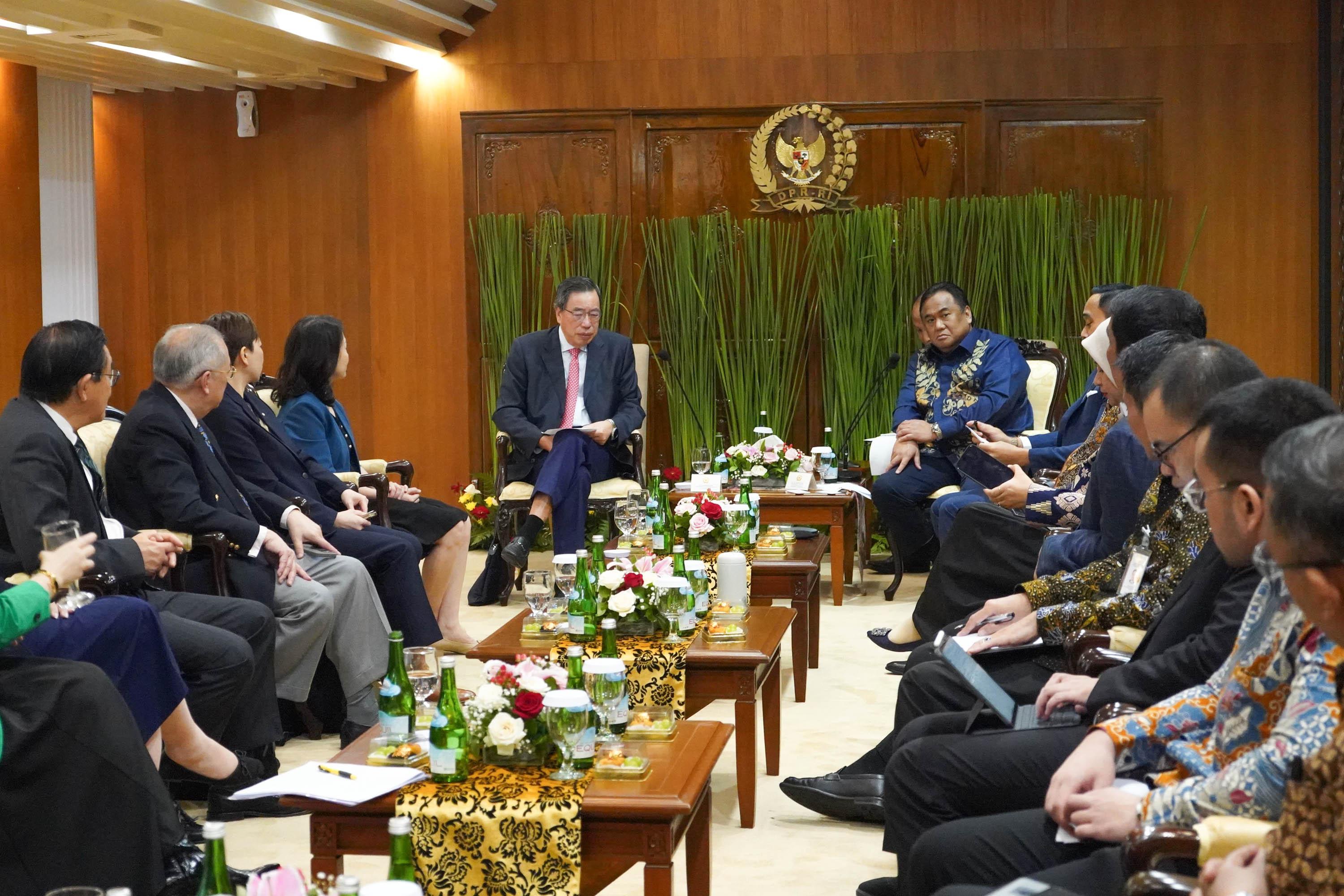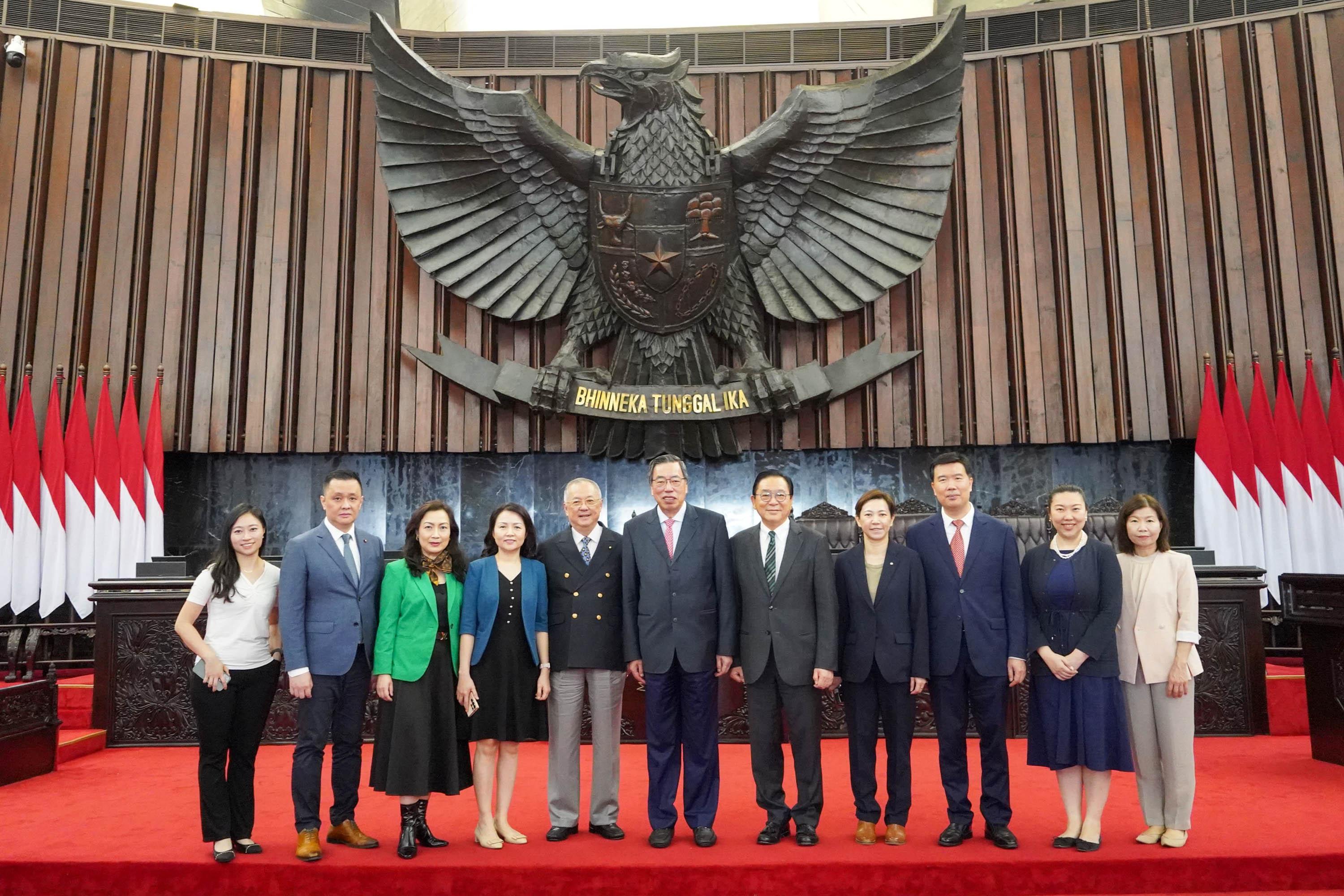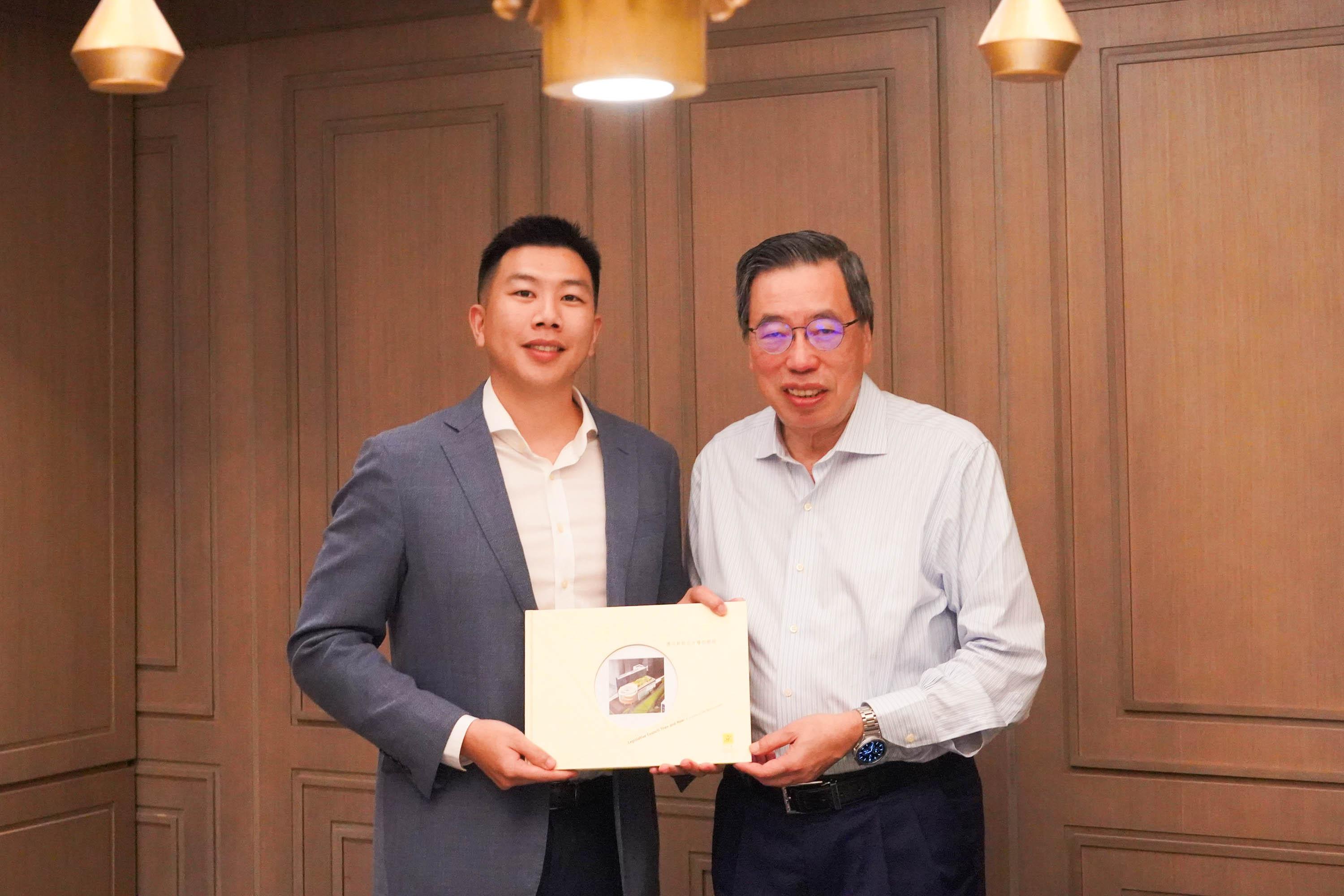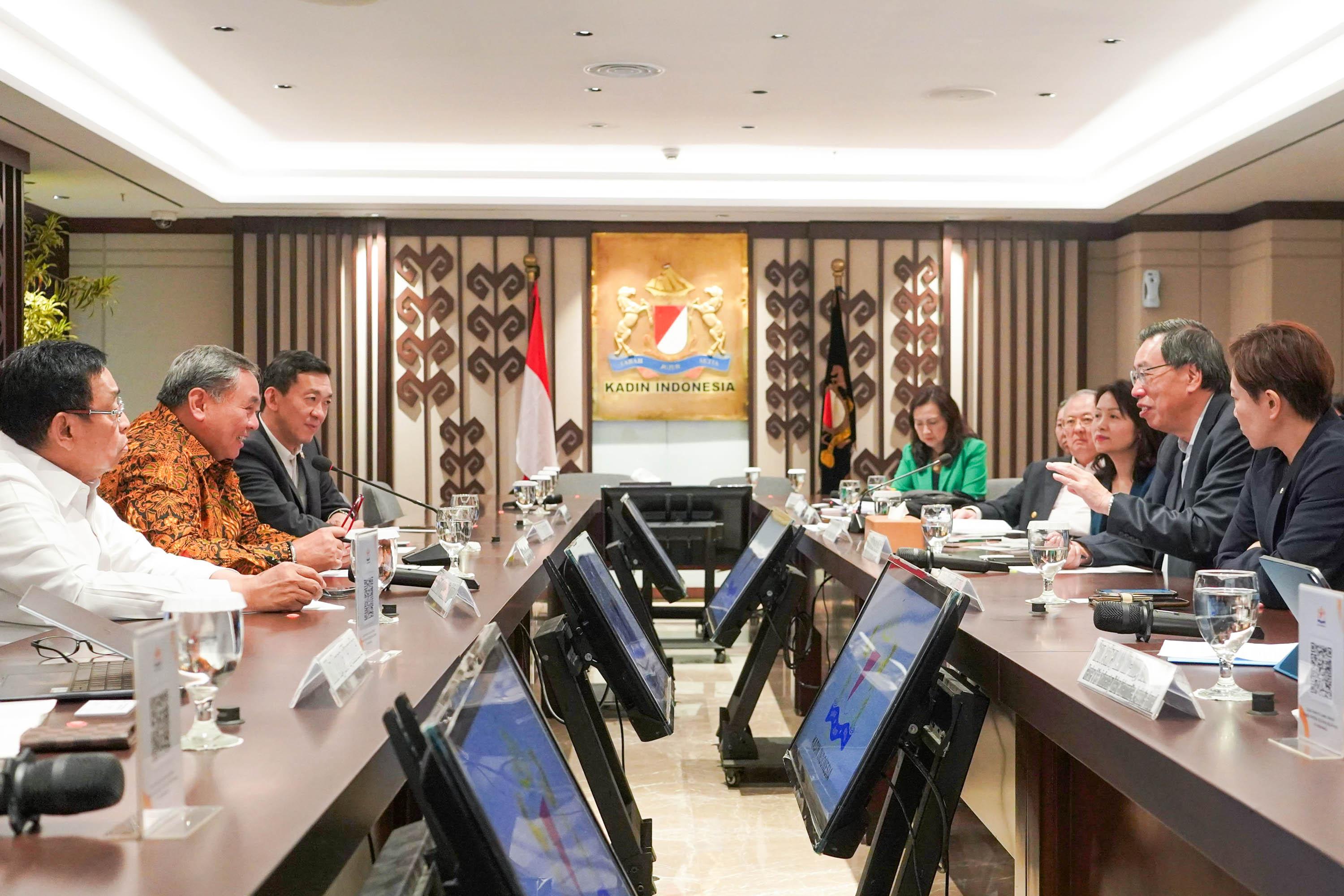The Chief Secretary for Administration, Mr Chan Kwok-ki, together with the Deputy Chief Secretary for Administration, Mr Cheuk Wing-hing; the Secretary for Environment and Ecology, Mr Tse Chin-wan; the Secretary for Transport and Logistics, Mr Lam Sai-hung; the Secretary for Development, Ms Bernadette Linn; the Secretary for Home and Youth Affairs, Miss Alice Mak; the Under Secretary for Security, Mr Michael Cheuk; the Commissioner for Labour, Ms May Chan; and the Director of the Hong Kong Observatory, Dr Chan Pak-wai, held a joint press conference this afternoon (May 16) on the Government's enhanced strategies and measures to cope with extreme weather. Following is the transcript of remarks of the press conference:
Reporter: Good afternoon. My first question is about the MTR's new plan for transporting passengers to the end of a line or major stations during a No. 9 typhoon signal (T9). Will there also be a review of the suspension of overhead trains when the T9 is in force? You also mentioned that the Government will wrap up an enforcement action against people going outside to experience typhoons. Can you specify what kind of actions will be banned, and under what circumstances will the Government consider using the citywide SMS alert system to warn residents about the extreme weather?
Secretary for Transport and Logistics: For the first part of the question relating to MTR operation, the open sections of the MTR lines will suspend operation if a No.9 or above signal is hoisted. A measure is now in place, so that in case the train is already in the open section, we will try to reach the final destination as far as practicable if safety permits. If not, we are now planning to stop at a major station, which may be big or may be connected to a mall or other commercial areas, so that people or passengers could have a better place for shelter and depart the area when weather allows. This is the provision that we are now planning.
Under Secretary for Security: In relation to the second question about people experiencing typhoon or whatever, what we mean is to dissuade people from having some sort of high-risk, very risky activities such as, say for example, during typhoon times, water sports, surfing, these are the activities that we are referring to. In relation to this, I recall an example about the Big Wave Bay, in the eastern part of Hong Kong, a renowned place for surfers, a place where loads of surfers go during typhoon times. We actually have a station officer there, using a loudhailer to dissuade people from getting into the sea. It is a very rough situation, and, be honest, if anything happened, it is not just costing 2,000 bucks or 14 days in prison, and you will cost your life. It also endangers lives of our emergency response officers. So what we are saying is, do not do something dangerous, and do not put yourself at risk.
In relation to the third question about the Emergency Alert System (EAS), I have explained it in Chinese and I will repeat it once again. In relation to foreseeable situation, say for example, adverse weather, our HKO (Hong Kong Observatory) has a very sophisticated warning system, which will issue appropriate advice and warning to members of the public. For the EAS, what we are aiming at is to deal with emergency situation, which is unforeseeable, or we have very little lead time. I will quote an example, a tsunami. From the time we detect it to the time it hits, there will be a very short period of time that will allow us not much room to manoeuvre, so the EAS is meant to address this situation, where we could issue emergency messages to all members of the public to advise them what is happening and what you are going to do, in order to put yourself in a better position or better prepare yourself with this. For example, if you are at low land, you better go to a higher area, or do a lot of things including putting sandbags or other precautionary measures to protect your property. So the EAS is aiming for unforeseen emergency that would affect lives or properties.
(Please also refer to the Chinese portion of the transcript.)

